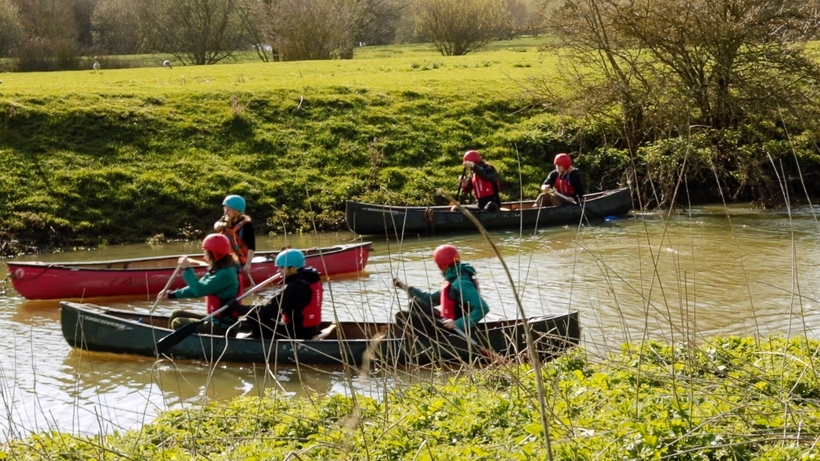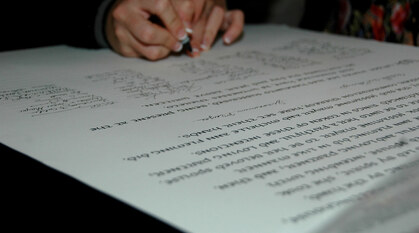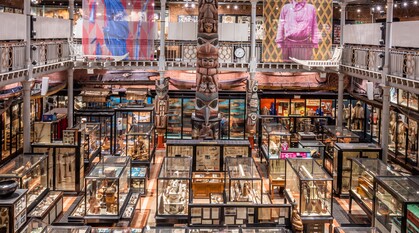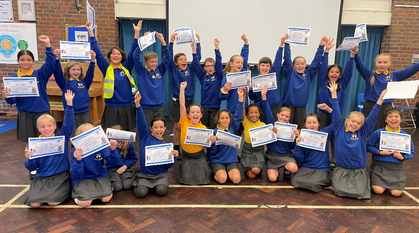Deepening community and building spiritual connections
Oliver Robertson reflects on what it means to 'be yourself' in a Quaker meeting and how this can impact someone's relationship with God.

"I was required to be myself". It was a line in passing, in our Friend Jennifer Kavanagh's introduction to one of the sessions at Yearly Meeting in 2022. But it has stayed tight to me ever since.
I was required to be myself, explained Jennifer, when I first went into Quaker meeting for worship. And of course – what else can we be with God? A relationship with the divine doesn't work without honesty.
When I think about the meetings where I have felt the greatest spiritual depth, they are also the ones where I have felt the strongest community. It's the George Gorman quote from Quaker faith & practice 10.20: "One of the unexpected things I have learnt in my life is that religion is basically about relationships between people. This was an unexpected discovery, because I had been brought up to believe that religion was essentially about our relationship with God". I've long believed that to be true, but not known why, until I heard that line in passing.
The closer I am to my fellow worshippers, the more I can be myself, without masks or barriers. The more I can be myself, the closer I can be to God.
And it's not just me: one of the most common things that participants say about Quaker young people's residential gatherings is how accepting they are, how people can 'be themselves'. These gatherings are often formative spiritual experiences for the children and teenagers who attend them, and they will keep going back year after year, even without other Quaker activities in between.
Maybe those religious leaders who say that God can see the real us have got it the wrong way round; maybe only the real us can see God.
[QUOTE-START]
If we are closest to God when being our real, authentic self, then what does that mean for the kind of Quaker community we need?
[QUOTE-END]
So if we are closest to God when being our real, authentic self, then what does that mean for the kind of Quaker community we need? What does that mean for the kind of Quaker community we are called to create?
I see this also as a spiritual dimension of arguments over trans and non-binary inclusion in our meetings. When people come to meeting and their beliefs or their very identity is challenged or denied, they will withdraw into themselves, away from relationship with the other members of the community, away from connection to the divine. If other churches, other faiths, reject them too, how can they build the religious community that strengthens relationship with God?
We say all are welcome at Quaker meeting. We need to demonstrate, through our actions, that this is true. People need to feel able to bring their whole self, or rather their true self, into the worshipping community. That will not happen if their true self is just grudgingly tolerated.
When we fail to show welcome, then we are all the poorer: shallower community connections mean more superficial spiritual connections. John's gospel in the Bible describes the Holy Spirit as rivers of living water; perhaps those rivers are only as strong and deep as our connections with each other.


